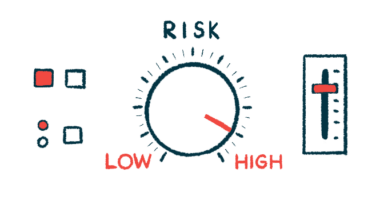My top 5 truths about the surgery recovery process
Healing can be messy, but know that there are better days ahead

With a history of eight major cardiovascular surgeries, I’m often assumed to be a pro at recovering from an operation. Maybe so, but no matter how many surgeries or procedures I endure, it never gets easier.
I’m now healing after a successful bypass revision of two of my aorta’s major arteries. As I approach one month post-op, I know one thing is true: The recovery process is always unpredictable. That’s what makes it so difficult.
Even after 32 years, with postoperative periods ranging from a few days to a few months, I still don’t know any secret tricks to make this time easier. But over the past few days, I’ve reflected on my multiple surgery recoveries and thought about what all of them have in common.
The following five commonalities — my truths — have helped me understand that surgery recovery is a process and that healing of any kind takes time.
1. Recovery is never linear
I wish the postoperative period were represented by a timeline, a clear visual of what to expect. I’d love to be able to point to the one-month mark and say, “The worst is behind me now!”
Unfortunately, that’s not how surgery recovery works. A better representation would be a scribble with twists and turns, spikes and plummets, bends and breaks. Envisioning any recovery as linear is a setup for disappointment.
2. Healing is emotional
Bodily trauma from surgery can bring up a range of emotions. Pain may lead to overstimulation and heightened emotional sensitivity. When I’m recovering, for instance, I feel caught in a cycle of ups and downs. My emotional health reflects my physical feelings.
When pain subsides and some level of normalcy returns, my body and mind get a boost of positive energy. But more often than not, especially in the beginning stages of recovery, these feelings are short-lived. When pain returns, when I’ve pushed myself too hard, my emotions come crashing down.
Feelings of dysregulation don’t need judgment. It’s important to admit that healing in itself is emotional.
3. Setbacks will happen
I’ve come to expect setbacks in recovery, which saves me so much frustration. That doesn’t mean my mindset is pessimistic; it’s just realistic.
Expecting setbacks helps me plan for any issues I might encounter, which eases my anxiety about the possibility that something could happen. Understanding what constitutes an emergency, knowing my necessary contacts, and taking the right course of action help make any reversals easier to overcome.
4. There’s no such thing as perfection
Just as setbacks are expected parts of recovery, so are the comebacks. Small victories will happen. It’s always been helpful for me to journal and write down even the smallest wins daily.
Jotting down these victories helps me reflect, especially on days that feel overwhelming. When I’m consumed by feelings of defeat, I shift my focus to the things I’ve accomplished and remind myself to always aim for progress, not perfection.
5. Better days are ahead
Every recovery has a “turn the corner” moment. There have been many times throughout my current recovery when I believed this moment wouldn’t come.
The good news is that the difficulties eventually lessen. It helps me to remember that physical pain will subside, movement will become easier, and routines and feelings of normalcy will slowly return.
Better minutes turn into better hours, better hours turn into better days, and better days turn into better weeks.
When healing feels overwhelming, as it inevitably will, remind yourself of these five truths of surgery recovery. Ignore whatever timeline you’ve created for yourself, allow emotions to surface, be realistic about setbacks, know that there’s no such thing as perfect, and believe that there are better days ahead.
Note: Pulmonary Hypertension News is strictly a news and information website about the disease. It does not provide medical advice, diagnosis, or treatment. This content is not intended to be a substitute for professional medical advice, diagnosis, or treatment. Always seek the advice of your physician or other qualified health provider with any questions you may have regarding a medical condition. Never disregard professional medical advice or delay in seeking it because of something you have read on this website. The opinions expressed in this column are not those of Pulmonary Hypertension News or its parent company, BioNews, and are intended to spark discussion about issues pertaining to pulmonary hypertension.









Comments
Vanessa Vaile
Thank you. Those five commonalities apply to recovering from so many other PH setbacks
Brittany Foster
Hi Vanessa,
Thank you for your comment! You are absolutely correct. These recovery truths certainly apply to any recovery period or setbacks, not just post op recovery. Are there any "truths" you would add to this list?
Thank you for reading!
Britt :)